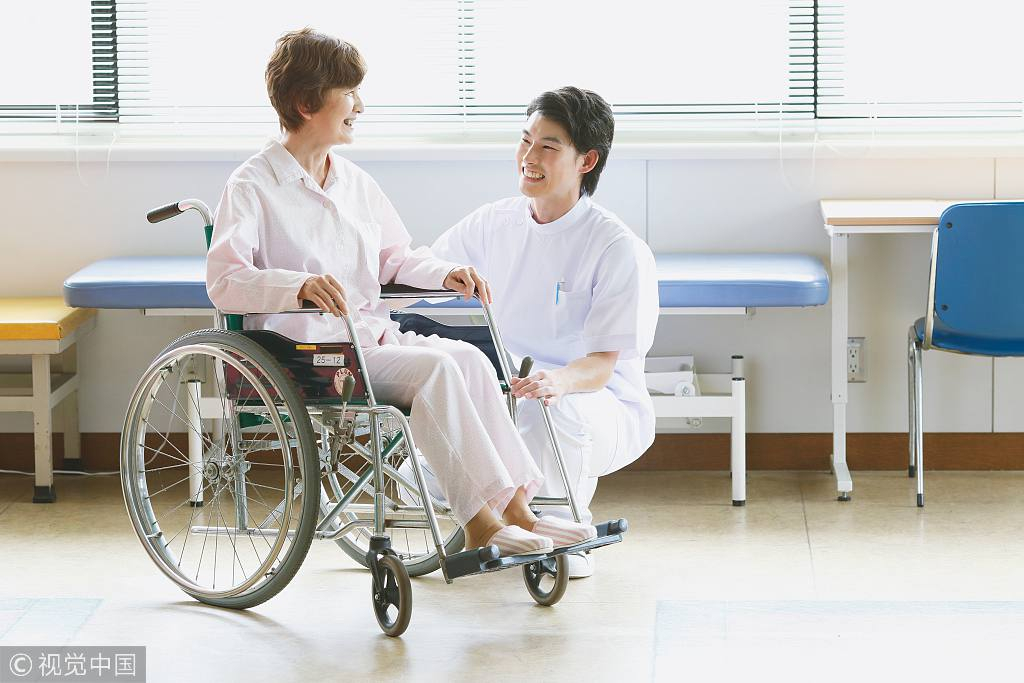
Technology
22:32, 18-Feb-2019
China pilots 'Internet Plus' nursing program for aging population
Updated
22:51, 18-Feb-2019
By Xing Ruinan
02:33

China is piloting an Internet-based nursing program to provide better services for its aging population. The online appointment platform allows qualified nurses to visit seniors and patients at their homes. The National Health Commission says the program will be effective until December, in six provinces and municipalities, including Beijing and Shanghai.
Du Ting is a registered nurse in Beijing. She responds to appointments that were made through the newly introduced online nursing platform. Du says when she is off work from her hospital job, she provides door-to-door services on her own. "I usually choose nearby places that I can arrive within an hour. The online program for nurses does not only increase my income, it also improves the quality of my services."

China is piloting an Internet-based nursing program to provide better services for its aging population. /VCG Photo
China is piloting an Internet-based nursing program to provide better services for its aging population. /VCG Photo
China's aging population has led to an increasing demand for elderly care facilities. Professor Yang Yansui from Tsinghua University Hospital said it's very hard to meet the demand from a surging number of seniors. "Now there are more than 100 million senior people over the age of 70 in our country, around 10 percent of whom need rehabilitation and nursing. Currently, most of them live in hospitals. But we don't have enough beds in our hospital, and the fees are actually a bit high."
According to China's health authorities, the pilot program is aimed at addressing the situation.

An online appointment platform in China allows qualified nurses to provide services to seniors and patients at their homes. /VCG Photo
An online appointment platform in China allows qualified nurses to provide services to seniors and patients at their homes. /VCG Photo
"In the future, more senior patients will choose to live their retired life and enjoy medical care at home, rather than in hospitals," said Liao Xinbo, former deputy director of Guangdong Provincial Commission of Health and Family Planning. "The online program provides a new service model for our ongoing medical reform."
However, the fees for online appointments are higher. The practice has also raised concerns regarding service quality. But a resident from Guangzhou, capital of southern China's Guangdong Province, remains optimistic. "We should give the program some time and I believe it will become better. The price may later be set more by market demand and other factors."
"There are some safety concerns. So first, only qualified nurses can be sent, and only qualified medical organizations can partner with the online health platform. Also, we still have to discuss the scope of the services that we can provide," noted Jia Yahui, deputy director of the Medical Administration Bureau under the National Health Commission.
The national and local governments have already introduced a range of measures to better serve China's aging society, including financial incentives for students and young graduates in the field of senior care, granting leaves for adult children to take care of their parents, and investing in community facilities for the elderly.

SITEMAP
Copyright © 2018 CGTN. Beijing ICP prepared NO.16065310-3
Copyright © 2018 CGTN. Beijing ICP prepared NO.16065310-3